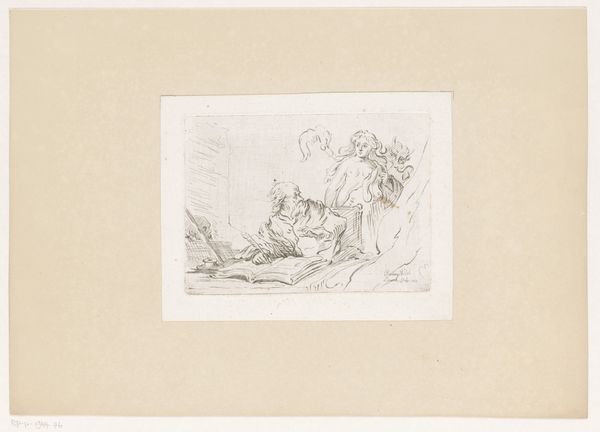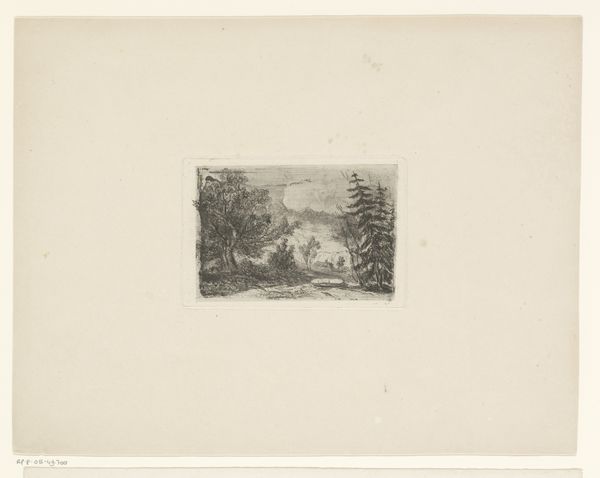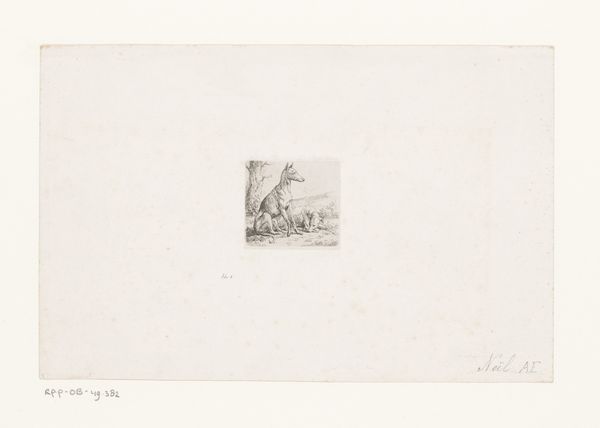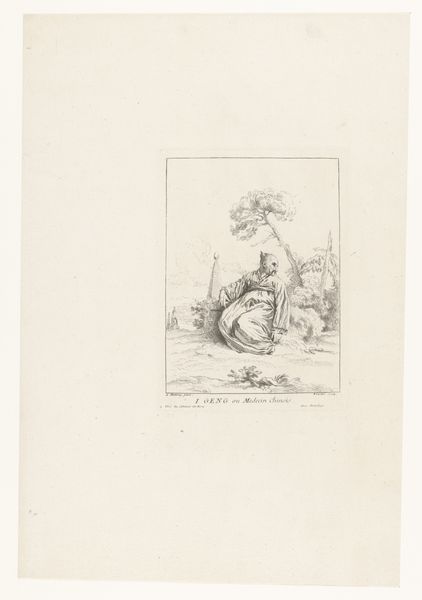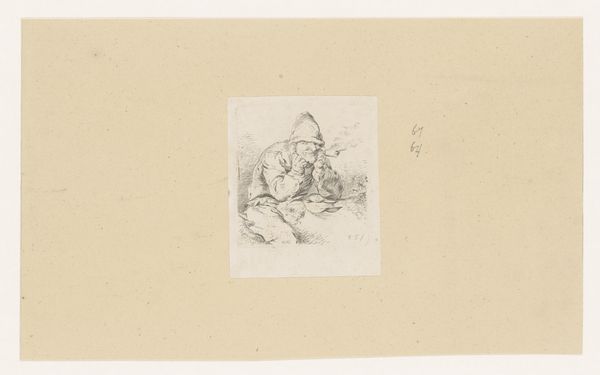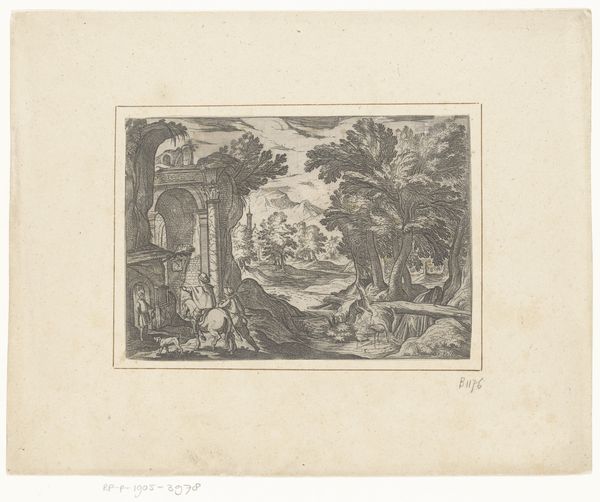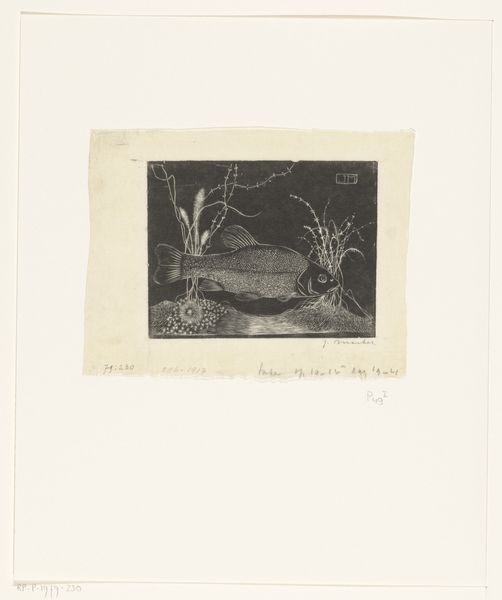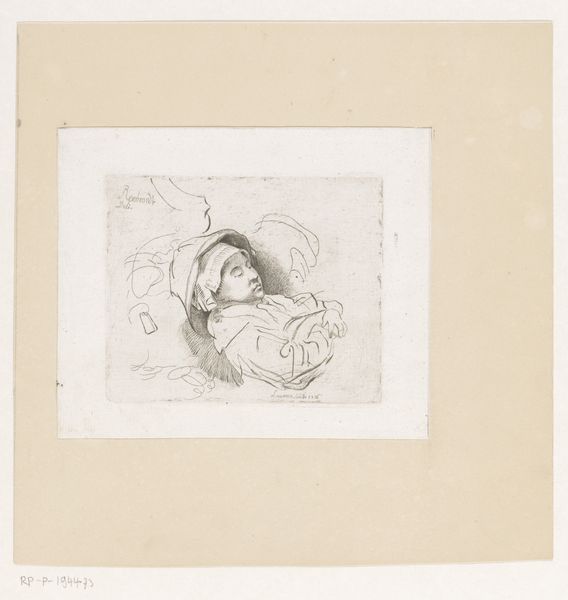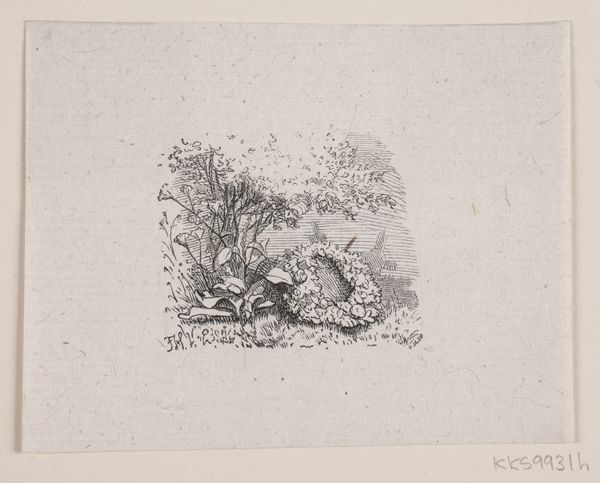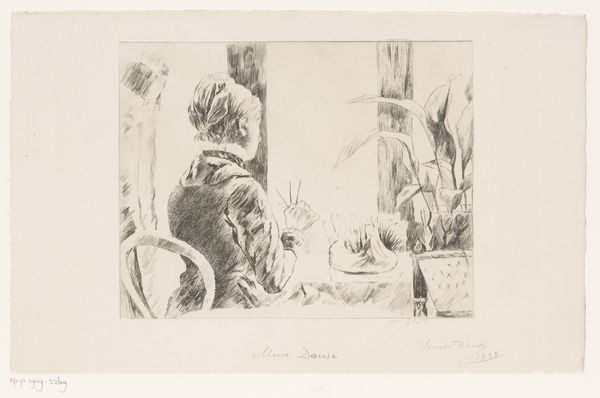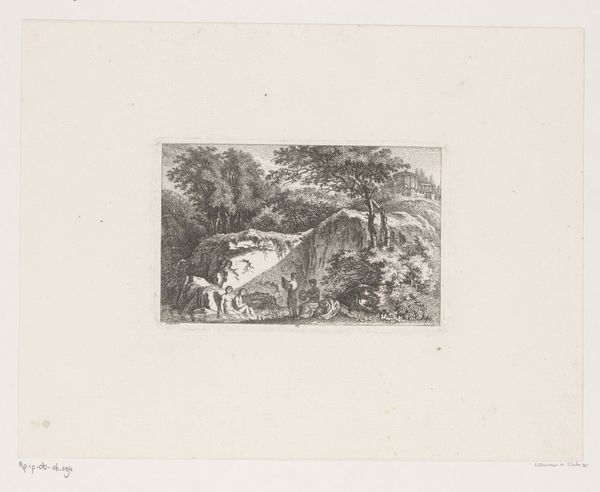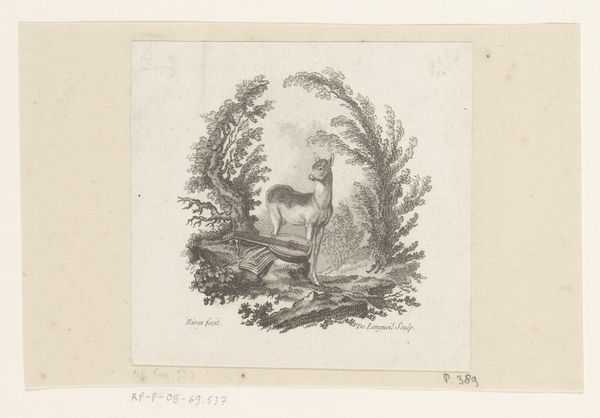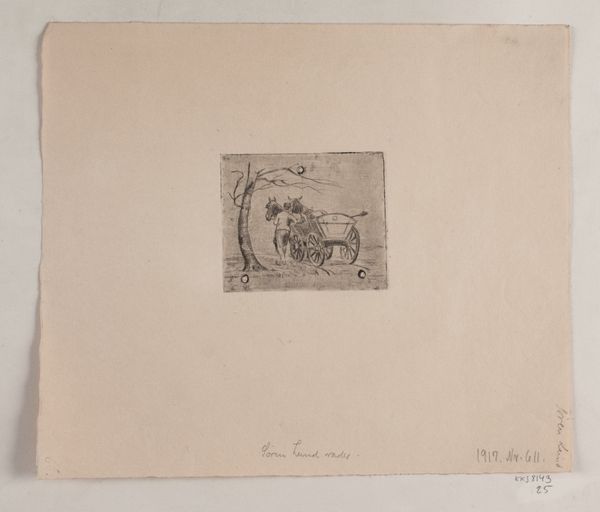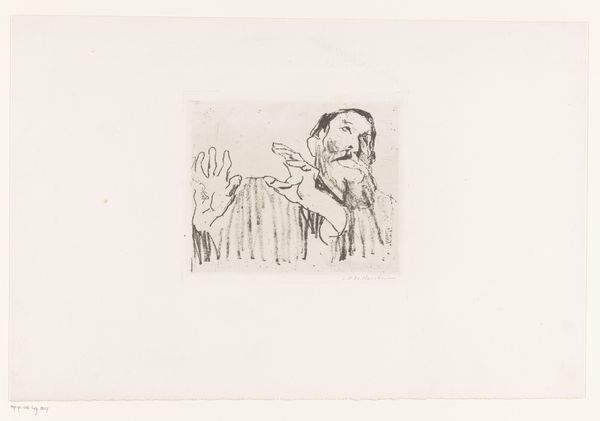
print, etching, paper, ink, engraving
#
baroque
#
ink paper printed
# print
#
etching
#
old engraving style
#
landscape
#
figuration
#
paper
#
ink
#
genre-painting
#
engraving
Dimensions: height 48 mm, width 64 mm
Copyright: Rijks Museum: Open Domain
Editor: This is "The Monk in the Cornfield," an etching created around 1646 by an anonymous artist. The figure is small and rendered in quite dark ink; I'm immediately drawn to this sense of a lone figure against a huge natural landscape. How do you interpret this work? Curator: Well, it’s interesting you’re drawn to the contrast. I immediately think about power dynamics inherent in representing rural life this way. How does portraying a monk within this seemingly ‘natural’ setting actually serve social and political narratives of the time? Think about the Church’s land ownership and influence – is this image a commentary, or a romantic idealization? Editor: So, you’re saying that instead of being just a simple landscape, it's interacting with historical and social conditions? Curator: Exactly. The presence of a religious figure also opens questions of faith, labor, and perhaps even resistance, if we see the cornfield as a contested space. What does labor look like for the lower class and what positionality does religion play within a social and capitalist frame work? Editor: It’s so interesting to consider that something seemingly bucolic could be laced with social commentary. It makes me wonder how the artist and the contemporary audience might have viewed the scene and this figure. Curator: It speaks to the intersectional way we can read images. What is on the surface, a scene depicting an agrarian image is rooted in gendered, socio-economic, and class dynamics that define not only artistic movements, but the structures in society which we are products of. Editor: I'll never look at an old etching the same way. Curator: And hopefully, we won't look at societal systems with the same, naive eye.
Comments
No comments
Be the first to comment and join the conversation on the ultimate creative platform.
